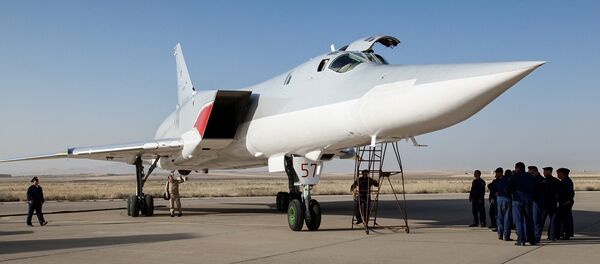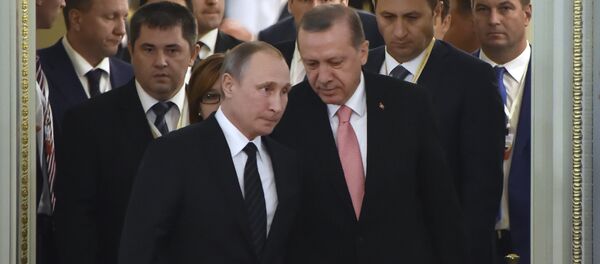"Washington has long since changed its stance on Assad," she said. Policymakers in the US "reached an agreement with Moscow on plans with regard to establishing a government of national unity that Assad will be a part of several months ago."
Ankara was opposed to any agreements that allowed Assad to remain in power. Moreover, Turkey provided assistance to radical groups trying to remove him and establish Sharia law in the war-torn country.
Turkey's foreign policy took a U-turn when Binali Yildirim replaced Ahmet Davutoglu as the country's prime minister. Yildirim announced that Ankara will focus on making friends and reducing the number of its enemies, leading to a thaw in Turkey's relations with Russia and Israel.

The unsuccessful putsch "sparked tensions between Ankara and Western countries, primarily the US due to its muted response" to what transpired on July 15, she observed. "On the other hand, support from Russia and Iran helped to speed up the rapprochement with this camp."
As a result, Ankara has warmed up to Moscow's approach to resolving the Syrian crisis. Moreover, Turkey was apparently ready to cooperate with Russia and the US on the issue months ago.
"Prior to the Su-24 downing on November 24, 2015, Ankara and Moscow reached an agreement," Özer said, citing an unnamed high-ranking official. "Turkey, Russia and the US were supposed to cooperate in the fight against al-Nusra Front. The political transition in Syria would have been faster. Other regional powers that welcomed these efforts would have supported this initiative."
The journalist explained that by regional powers the source most likely meant Iran.
Tensions between Turkey and the US could be an issue, but Özer maintained that since Washington is interested in resolving the Syrian crisis, its relations with Ankara will develop accordingly.
If true, these developments will impact on Turkey's strategy in Syria.
"Ankara will have to drop the Assad issue from its current agenda, since the Syrian president benefits from cooperation between Russia and the US," the journalist noted. The Geneva process "will speed up and Ankara will have to serve as a mediator between opposing factions."Indeed, Turkish authorities seem to be moving in this direction.
On Monday, Binali Yildirim said that Syria's future political structure will not be sectarian and as a result "Assad will not be there in the long-run." However, Yildirim did not call for Assad's immediate resignation.




